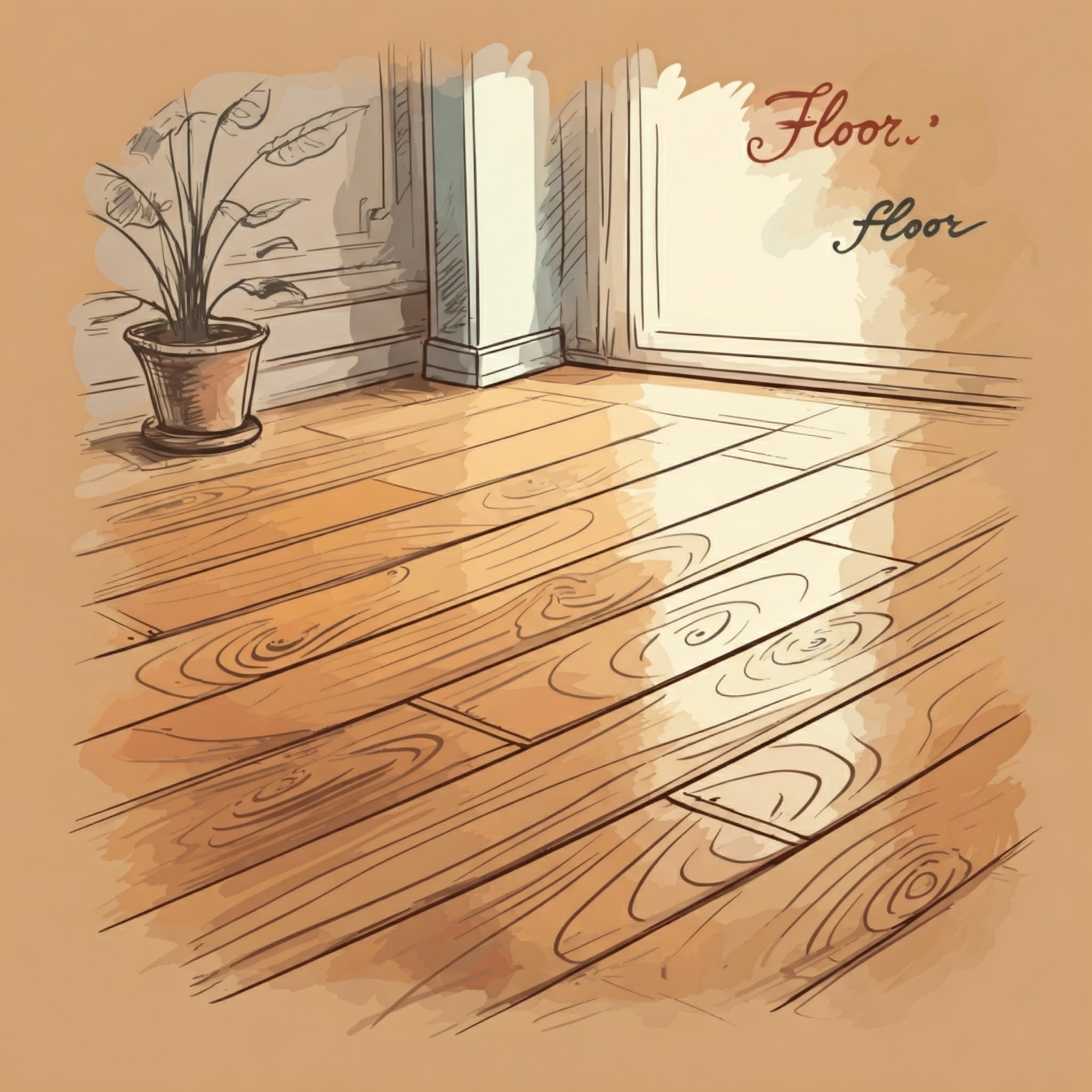Floor
Definition
Floor refers to the surface of a room on which one stands. It can also denote the level of a building or a platform for discussion, debate, or performance.
Parts of Speech
- Noun
- Verb
Pronunciation
American English
- IPA Pronunciation: /flɔːr/ or /flɔr/
- Respelling: flawr
British English
- IPA Pronunciation: /flɔː/
- Respelling: flaw
Etymology
The word "floor" originates from Old English "flōr," meaning "ground" or "bottom," derived from Proto-Germanic "*flōruz." It is related to Old Norse "flōr" and Dutch "vloer," maintaining its meaning of a surface or foundation.
Derivatives
- Flooring (noun)
- Floored (adjective)
- Refloor (verb)
- Floorboard (noun)
- Floorman (noun)
Synonyms
- Ground
- Pavement
- Deck
Antonyms
- Ceiling
- Roof
- Sky
Usage
The term "floor" is commonly used in architectural, mechanical, and figurative contexts. For instance, "The house has hardwood floors," or "He was given the floor to speak at the meeting."
Related Terms
- Ceiling: The upper interior surface of a room.
- Foundation: The lowest load-bearing part of a building.
- Platform: A raised surface or stage.
Detailed Definitions
Noun
- The bottom surface of a room: Refers to the surface that supports furniture and people.
- Example: "The marble floor added elegance to the hallway."
- A level of a building: Indicates a story or level within a structure.
- Example: "Her office is on the fifth floor."
- A platform for speaking or performing: Used in contexts of debate or discussion.
- Example: "He took the floor to present his argument."
Verb
- To knock to the ground: Refers to physically causing someone or something to fall.
- Example: "The boxer floored his opponent with a powerful punch."
- To greatly surprise or shock: Used figuratively to describe being overwhelmed.
- Example: "Her unexpected response completely floored me."
floor



🇨🇳 Mandarin
- 地板
- IPA: /dì bǎn/
- Respelling: dì-bǎn
- 楼层
- IPA: /lóu céng/
- Respelling: lóu-céng
🇮🇳 Hindi
- फ़र्श
- IPA: /fərʃ/
- Respelling: farsh
- मंजिल
- IPA: /mənd͡ʒil/
- Respelling: manzil
🇪🇸 Spanish
- Suelo
- IPA: /ˈswelo/
- Respelling: swe-lo
- Piso
- IPA: /ˈpiso/
- Respelling: pee-so
🇫🇷 French
- Sol
- IPA: /sol/
- Respelling: sol
- Étage
- IPA: /e.taʒ/
- Respelling: e-tazh
🇸🇦 Modern Standard Arabic
- أرضية
- IPA: /ˈʔard.ʒij.jaː/
- Respelling: ardiyya
- طابق
- IPA: /ˈtaː.biq/
- Respelling: taabiq
🇧🇩 Bengali
- তল
- IPA: /tɔl/
- Respelling: tol
- মজিল
- IPA: /mod͡ʒil/
- Respelling: mojil
🇷🇺 Russian
- Пол
- IPA: /pol/
- Respelling: pol
- Этаж
- IPA: /ɪˈtaʂ/
- Respelling: ee-tash
🇵🇹 Portuguese
- Chão
- IPA: /ʃɐ̃w̃/
- Respelling: shaõ
- Andar
- IPA: /ɐ̃ˈdaɾ/
- Respelling: an-dar
🇮🇩 Indonesian
- Lantai
- IPA: /lantai/
- Respelling: lan-tai
- Tingkat
- IPA: /tiŋ.kat/
- Respelling: ting-kat
🇩🇪 German
- Boden
- IPA: /ˈboːdn̩/
- Respelling: boh-den
- Stockwerk
- IPA: /ˈʃtɔkvɛʁk/
- Respelling: shtock-verk
🇯🇵 Japanese
- 床
- IPA: /joːka/
- Respelling: yo-ka
- 階
- IPA: /ka.i/
- Respelling: ka-i
🇻🇳 Vietnamese
- Sàn
- IPA: /səːn˧/
- Respelling: san
- Tầng
- IPA: /təːŋ˧˥/
- Respelling: tăng
🇰🇷 Korean
- 바닥
- IPA: /ba.dak̚/
- Respelling: ba-dak
- 층
- IPA: /t͡ɕʰʌŋ/
- Respelling: chung
🇹🇷 Turkish
- Zemin
- IPA: /zeˈmin/
- Respelling: ze-min
- Kat
- IPA: /kat/
- Respelling: kat
🇵🇰 Urdu
- فرش
- IPA: /fərʃ/
- Respelling: farsh
- منزل
- IPA: /mənd͡ʒil/
- Respelling: manzil





